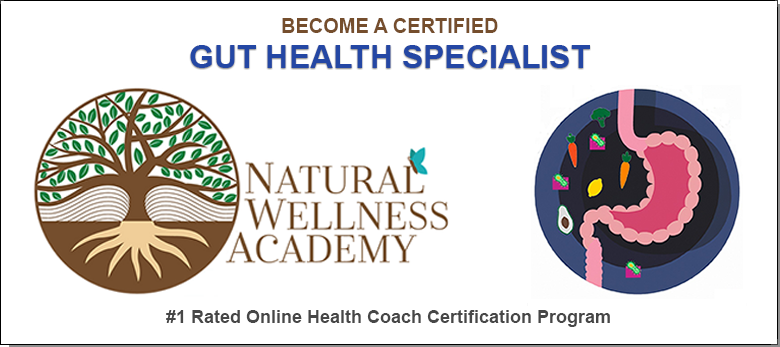
The intricate relationship between our gut and brain is a fascinating area of study that has gained significant attention in recent years. Known as the mind-gut connection, this complex communication network links the emotional and cognitive centers of the brain with intestinal functions. Understanding how gut health influences our mood can offer valuable insights into managing stress, anxiety, and depression through dietary and lifestyle changes.
The Science Behind the Mind-Gut Connection
Understanding the intricate science behind the mind-gut connection requires exploring the anatomical and functional aspects of the gut-brain axis. This axis represents the complex bidirectional communication network linking our gut and brain.
Anatomy of the Gut-Brain Axis
The gut-brain axis consists of several key components that facilitate communication between the gut and the brain. This axis is integral to maintaining overall health and well-being.
Structure and Function
The gut-brain axis includes the central nervous system (CNS), the enteric nervous system (ENS), the vagus nerve, and the gut microbiota. The CNS encompasses the brain and spinal cord, while the ENS, often referred to as the “second brain,” is embedded in the lining of the gastrointestinal system. The vagus nerve acts as a communication superhighway, transmitting signals between the gut and the brain.
Key Components: Gut Microbiota, Vagus Nerve, and Neurotransmitters
The gut microbiota, comprising trillions of microorganisms, plays a crucial role in the gut-brain axis. These microorganisms influence the production of neurotransmitters such as serotonin, dopamine, and gamma-aminobutyric acid (GABA), which are essential for regulating mood and cognitive functions.
How the Gut Communicates with the Brain
The communication between the gut and the brain occurs through chemical signaling pathways and involves a sophisticated network of interactions.
Chemical Signaling Pathways
Chemical signaling between the gut and the brain includes the release of hormones, neurotransmitters, and immune system molecules. These chemical messengers facilitate rapid communication and influence various physiological and psychological processes.
The Role of Neurotransmitters: Serotonin, Dopamine, and GABA
Neurotransmitters play a pivotal role in the gut-brain axis. Serotonin, often referred to as the “feel-good” neurotransmitter, is predominantly produced in the gut. Dopamine, associated with pleasure and reward, and GABA, which promotes relaxation, are also influenced by gut health. The balance and function of these neurotransmitters are crucial for maintaining mood stability and cognitive health [1].
How Gut Health Affects Mood
The connection between gut health and mood is profound, influencing mental well-being through various mechanisms. Understanding how gut microbiota and inflammation impact mood can shed light on the importance of maintaining a healthy gut.
Impact of Gut Microbiota on Mental Health
The gut microbiota, consisting of trillions of microorganisms, plays a significant role in regulating mood and mental health. The balance and diversity of these microorganisms are crucial for optimal brain function.
Types of Gut Bacteria and Their Functions
Different types of gut bacteria perform various functions that contribute to mental health. For example, Bifidobacteria and Lactobacilli are known for their positive effects on mood and stress levels. These beneficial bacteria produce short-chain fatty acids and other metabolites that influence brain function and emotional regulation.
Effects on Anxiety, Depression, and Stress
An imbalance in gut microbiota, known as dysbiosis, has been linked to increased anxiety, depression, and stress. Dysbiosis can lead to the overproduction of harmful substances and a reduction in beneficial metabolites, disrupting the gut-brain axis. Studies have shown that restoring a healthy balance of gut bacteria can alleviate symptoms of these mood disorders.
Inflammatory Responses and Mood Disorders
Inflammation in the gut can have a significant impact on brain function and mood. The link between gut inflammation and mood disorders is an area of growing research interest.
Connection Between Gut Inflammation and Brain Inflammation
Gut inflammation can trigger a systemic inflammatory response, affecting the brain. This process involves the release of pro-inflammatory cytokines that can cross the blood-brain barrier, leading to neuroinflammation. Neuroinflammation is associated with various mood disorders, including depression and anxiety.
Chronic Inflammation and Its Effects on Mood
Chronic inflammation in the gut can have long-lasting effects on mood and mental health. Persistent inflammation can alter neurotransmitter production and function, contributing to the development of mood disorders. Addressing gut inflammation through dietary and lifestyle changes can help improve mood and overall mental well-being [2].

Factors Influencing Gut Health
Several factors influence gut health, playing crucial roles in maintaining a balanced microbiota and reducing inflammation. These factors include diet, lifestyle choices, and environmental elements. Understanding how each of these areas impacts gut health can help in making informed decisions to promote better mental and physical well-being.
Diet and Nutrition
Diet is one of the most significant factors affecting gut health. The types of food consumed directly influence the composition and function of gut microbiota.
Probiotics and Prebiotics
Probiotics are beneficial bacteria that can be ingested through foods like yogurt, kefir, and fermented vegetables. These microorganisms help to populate the gut with healthy bacteria. Prebiotics, found in foods like garlic, onions, and bananas, are non-digestible fibers that feed and support the growth of beneficial gut bacteria. Together, probiotics and prebiotics create a supportive environment for a healthy gut microbiome.
Anti-Inflammatory Foods and Their Benefits
Foods with anti-inflammatory properties, such as fatty fish, berries, nuts, and leafy greens, can reduce gut inflammation and promote a balanced microbiota. These foods contain antioxidants and omega-3 fatty acids, which help in reducing inflammation and supporting overall gut health. Incorporating a variety of these foods into the diet can lead to improvements in gut and mental health.
Lifestyle Choices
Lifestyle habits also play a vital role in maintaining gut health. Regular physical activity and effective stress management are essential components of a healthy lifestyle.
Exercise and Physical Activity
Regular exercise has been shown to positively affect gut health by enhancing the diversity of gut microbiota. Physical activity helps in the movement of food through the digestive system, reducing the risk of constipation and supporting overall digestive health. Exercise also reduces inflammation, which benefits both the gut and the brain [3].
Stress Management Techniques
Chronic stress can negatively impact gut health by disrupting the balance of gut microbiota and increasing inflammation. Stress management techniques such as meditation, yoga, and deep breathing exercises can help reduce stress levels and promote a healthier gut. These practices help in maintaining the integrity of the gut-brain axis, leading to better mental health.
Environmental Factors
The environment also influences gut health in various ways. Exposure to toxins, pollutants, and certain medications can disrupt the gut microbiome and contribute to inflammation.
Toxins and Pollutants
Environmental toxins and pollutants, such as pesticides, heavy metals, and chemicals, can damage the gut lining and alter the composition of gut bacteria. Reducing exposure to these harmful substances by choosing organic foods, using natural cleaning products, and avoiding areas with high pollution can help protect gut health.
Antibiotics and Medication Use
While antibiotics are essential for treating bacterial infections, they can also disrupt the gut microbiome by killing beneficial bacteria. Overuse of antibiotics and other medications can lead to an imbalance in gut bacteria, known as dysbiosis. It’s important to use antibiotics only when necessary and to follow a healthcare provider’s advice on restoring gut health, such as taking probiotics after antibiotic treatment.
Practical Steps to Improve Gut Health and Enhance Mood
Improving gut health can have a significant positive impact on mood and overall well-being. By incorporating specific dietary recommendations, making lifestyle adjustments, and considering supplementation, individuals can support their gut microbiota and enhance mental health.
Dietary Recommendations
Diet plays a critical role in shaping the gut microbiome. Making thoughtful food choices can promote a healthy gut and improve mood.
Incorporating Fermented Foods
Fermented foods are rich in probiotics, which are beneficial bacteria that support gut health. Including foods such as yogurt, kefir, sauerkraut, kimchi, and miso in your diet can help increase the population of good bacteria in the gut. These foods aid digestion and enhance the gut’s ability to produce neurotransmitters that regulate mood.
Balancing Macronutrients and Micronutrients
A balanced diet that includes an appropriate mix of macronutrients (carbohydrates, proteins, and fats) and micronutrients (vitamins and minerals) is essential for gut health. Fiber-rich foods, such as fruits, vegetables, whole grains, and legumes, support digestive health and feed beneficial gut bacteria. Ensuring adequate intake of vitamins and minerals, particularly those that support immune function and reduce inflammation, can also benefit gut health [4].
Lifestyle Adjustments
Lifestyle changes can have a profound effect on gut health and mood. Incorporating regular exercise and effective stress management techniques can promote a healthier gut.
Establishing a Regular Exercise Routine
Regular physical activity enhances gut health by promoting the diversity of gut microbiota and improving digestion. Exercise stimulates the movement of food through the digestive system, reducing the risk of constipation. Activities such as walking, running, cycling, and strength training can all contribute to better gut health and mood.
Techniques for Reducing Stress: Meditation, Yoga, and Mindfulness
Stress management is crucial for maintaining a healthy gut-brain axis. Practices like meditation, yoga, and mindfulness can help reduce stress levels and promote relaxation. These techniques have been shown to positively affect gut health by decreasing inflammation and supporting the balance of gut microbiota. Regular practice can lead to improvements in both gut health and mental well-being.
Supplementation and Probiotics
In some cases, supplementation may be necessary to support gut health. Choosing the right probiotics and supplements can enhance the gut microbiome and improve mood.
Choosing the Right Probiotics
Probiotics are available in various forms, including capsules, tablets, and powders. It’s important to choose probiotics that contain strains known to benefit gut health, such as Lactobacillus and Bifidobacterium. Consulting with a healthcare provider can help determine the best probiotic supplement for individual needs.
Benefits and Potential Risks
While probiotics and supplements can offer significant benefits, it’s essential to be aware of potential risks. Some individuals may experience side effects, such as digestive discomfort or allergic reactions. It’s important to start with a low dose and gradually increase it, monitoring any changes in health. Consulting a healthcare provider before starting any new supplement regimen is advisable to ensure safety and efficacy.
References
[1] The Role of Diet on the Gut Microbiome, Mood and Happiness
[2] Gut feelings: How food affects your mood
[3] Turns out your ‘gut feelings’ are real. How gut and mental health are connected
[4] Evidence mounts that gut bacteria can influence mood, prevent depression
